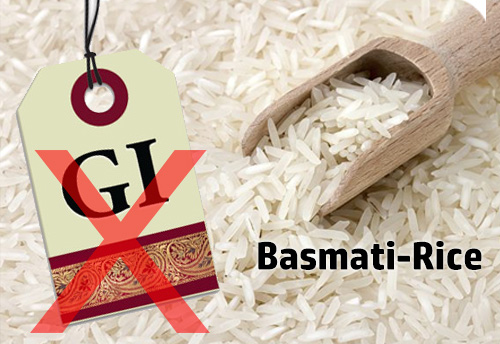ISLAMABAD: With only two days to go in the deadline, Pakistan has finally challenged India’s application for an exclusive Geographical Indication (GI) tag for basmati rice in the European Union (EU).
According to officials at Intellectual Property Organisation (IPO) Pakistan, the opposition has been filed pursuant to Article 51 of the Regulation (EU) No 1151/2012 through a Brussels-based international law firm, Messrs Altius.
Adviser to Prime Minister on Commerce Abdul Razak Dawood confirmed the development through a tweet on Wednesday and assured rice exporters that the government would defend the case with due diligence and commitment.
I wish to inform that Pakistan has filed its opposition against the Indian application to European Commission for granting exclusive rights on the use of Basmati for its rice exports to European Union (EU). We assure the rice community that we will…1/2
— Abdul Razak Dawood (@razak_dawood) December 8, 2020
…defend our case with due diligence and commitment. 2/2 @ImranKhanPTI @aliya_hamza @IPOPakistan @jswto1 @PTVNewsOfficial @RadioPakistan @appcsocialmedia @tdap_official @GovtofPakistan @Emergingpk
— Abdul Razak Dawood (@razak_dawood) December 8, 2020
Earlier, the Ministry of Commerce had shortlisted two law firms, Messre Altius and Messrs Liedekerke Wolters Waelbroeck Kirkpatrick, to fight the basmati battle.
As per the European Commission’s rule, opposition to any application, once published in its official journal, need to be filed within a period of three months. This meant that Pakistan needed to file the application before December 11.
Currently, India accounts for 65 per cent of the international trade in basmati, while Pakistan accounts for the remaining 35pc. The long-grained aromatic rice fetches Pakistan around $800 million to $1 billion annually.
It may be mentioned that the notice of opposition should contain a declaration that an application might infringe the conditions laid down in the regulation after which the commission will forward the notice to the relevant authority. If the opposition is followed by a reasoned statement of opposition within two months, the commission will check the admissibility of the latest statement of opposition.
The commission will then have another two months to invite the authority or person that lodged the opposition to engage in appropriate consultations within a three-month time frame.
It is pertinent to mention here that India had applied for the GI tag for basmati under Article 50(2)(a) of Regulation (EU) No 1151/2012 of the European Parliament and Council on Quality Schemes for Agricultural Products and Foodstuffs, mentioned in the EU official journal dated September 11 whereas the Pakistani government had decided to oppose the application demanding exclusive rights of claiming a GI tag to basmati rice in the EU on September 22.
The protection of geographical indications helps a country boost exports, support rural development, and enhance the livelihood of agriculture producers and skilled craftsmen.
The marketing of GI products also enhances secondary economic activities and boosts regional economic development.
The GI law protects local products such as the Peshawari chappals, Multani blue pottery, Hunza apricots, Hala ajrak, Kasuri methi, Chaman grapes, Turbat dates etc.




